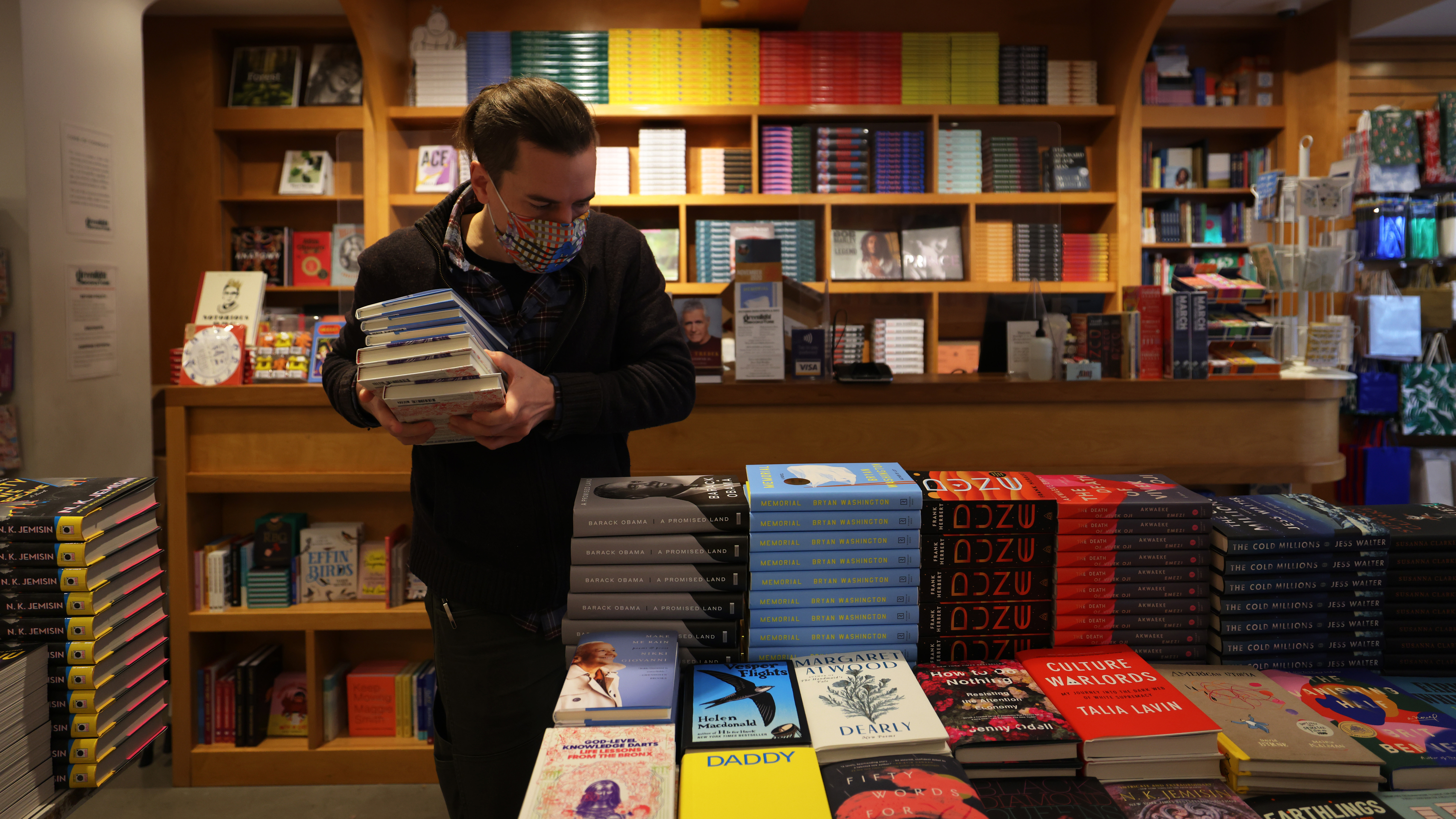TEXT OF INTERVIEW
Kai Ryssdal: Usually, when we’ve got an author on the show, it’s to talk about the book. They get publicity, we get to talk about their ideas with them. Today, something a little bit different. An interview not about the book but about the publishing of it. Chuck Klosterman is here. You might know him from his earlier books, “Sex, Drugs and Cocoa Puffs” is probably the best known. He’s out with a new collection of essays. About everything from America’s relationship with Abba to the offensiveness of laugh tracks. Perhaps not mainstream publishing fare. Chuck, welcome to the program.
CHUCK KLOSTERMAN: Thanks for having.
Ryssdal: First things first, in an interview that will be a little about this book, but a lot about publishing this book. One of the things you have to think about when you’re coming up with a book that you’re going to put on the market and publish is the title. Where did this one come from?
KLOSTERMAN: Initially, I was going to call the book just “Eat the Dinosaur,” which I thought, you know, could maybe become some kind of strange slang, possibly for failure if the book did poorly. But then I was convinced that “Eating the Dinosaur” seemed more active. As if … in a way I talk a lot about sort of old dying media: newspapers, conventional television, the old music industry. You know, they always talk about newspapers being a dinosaur and anything non-new media, you know, being dinosaurlike. This is sort of a last attempt to examine some of these ideas, I guess I am technically eating that dinosaur.
Ryssdal: So you were hoping to get “eating the dinosaur” to be the new phrase “jumping the shark,” right?
KLOSTERMAN: Well, no, because I hate that phrase “jumping the shark.” I guess I would hate it if “eating the dinosaur” became a new “jumping the shark.”
Ryssdal: You’re a guy who with your track record could probably go to your publisher and say, “I’m going to scribble some stuff on the back of a cereal box, and I want you to publish it.” And they would probably think about it for a second, but then they’d say, “All right, Chuck.” What’s the process like when you get a book idea, and you go into your publisher and say here’s what I want to do?
KLOSTERMAN: It’s strange because it definitely changes, you know. The first time you try to sell a book, when I was putting together “Fargo Rock City.” It was a book that when … I didn’t know anyone in New York or anything. I just kind of stumbled into an agent. And even though that book was almost finished when I submitted it, we didn’t tell them that, we just took out the best parts and made it into a proposal. Because when you try to sell a book the first time, the proposal, weirdly, is actually way more important than the book itself. But after that it changes entirely. I haven’t really written a book proposal in any of the previous four, beyond sort of what I guess in Hollywood would be considered like a treatment.
Ryssdal: Now that you have this relationship with a publishing company, and you’re a proven guy, and you’re a performer, and your books sell in varying degrees, does that give you more freedom to write more of what you want?
KLOSTERMAN: Absolutely. It really does. That is one of the big things about the world that I realize now that I would have disagreed with when I was younger. I used to think that to have freedom you can’t have any relationship with anything, with anybody else. And that’s not really true, because the thing that you really need to be able to write what you want is sort of the support of somebody who is going to say, “Well, as long as this is commercially feasible for us, we will allow you to be the person that you want to be or whatever.” I mean, you look at a band like U2. U2 has more freedom than any indie rock artist there is. I mean U2 can literally make any record they want. They could make a record of droning, they could have a record that has droning but also with like Eddy Van Halen guest-playing guitar. They could actually create whatever world that they desire. Radiohead is the same way.
Ryssdal: So, which was it in this book. Was it the chapter on the Unabomber, or David Koresh and Nirvana, or Ira Glass and Errol Morris in the beginning? I mean, did you put something in here that maybe you wouldn’t have?
KLOSTERMAN: No, I just write about the ideas that are interesting to me. I have found that anytime I have ever attempted to try to figure what would be interesting to other people, it becomes very transparent and it fails.
Ryssdal: Chuck Klosterman. His latest book, collection of essays, is called “Eating the Dinosaur.” Chuck, thanks a lot.
KLOSTERMAN: Thanks for having me.
There’s a lot happening in the world. Through it all, Marketplace is here for you.
You rely on Marketplace to break down the world’s events and tell you how it affects you in a fact-based, approachable way. We rely on your financial support to keep making that possible.
Your donation today powers the independent journalism that you rely on. For just $5/month, you can help sustain Marketplace so we can keep reporting on the things that matter to you.


















